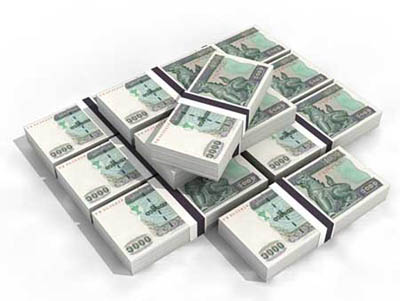
| By YENI | Friday, January 14, 2011 |
Cooperative Bank, Burma's second-largest privately owned financial institution, is fighting for its survival as depositors rush to withdraw their savings amid rumors that the bank's owner is involved in a business dispute with a crony of one of the ruling regime's most powerful generals.
According to Rangoon-based business sources, the bank's reserves have dwindled to almost nothing, and its chairman, Khin Maung Aye, is struggling to secure credit from other banks to stay afloat.
 |
“None of them will lend him anything. We are very concerned that Cooperative Bank is on the verge of collapse because of its extremely weak financial position,” said a source close to the banks.
However, there have also been reports that some of Burma's senior leaders have stepped in to prevent the failure of the bank. Specifically, former Gen Thein Sein, the country's prime minister, and former Maj-Gen Tin Htut, the minister of the Co-operatives and patron of the Cooperative Bank , who are said to be close to Khin Maung Aye, are believed to have intervened on the bank's behalf.
The same reports added, however, that Khin Maung Aye remains under pressure, with some other leading generals pushing for his resignation as the bank's chairman and as the secretary general of the Myanmar Bank Association.
According to Burma's Central Bank, Cooperative Bank held around 35 billion kyat (US $42 million) in deposits before the crisis. However, sources said that depositors began quietly withdrawing their money from the bank in mid-December after it was rumored that Khin Maung Aye was on bad terms with former Lt-Gen Thiha Thura Tin Aung Myint Oo, the regime's secretary 1 and Trade Council chairman.
Sources said that Khin Maung Aye's troubles started when he complained late last year about Tin Aung Myint Oo's decision to give licenses to Asia World, a company owned by his business associate Tun Myint Naing (aka Steven Law), the son of former drug lord Lo Hsing Han, to operate ground handling and passenger services at the country's two international airports in Rangoon and Mandalay.
Tin Aung Myint Oo has also recently awarded several other major contracts to Asia World, including for construction of hydro-power plants, jetties in Rangoon port, airports, and roads and bridges.
“Khin Maung Aye openly asked Tin Aung Myint Oo to give the ground handling and passenger services licenses to MAI [Myanmar Airways International], which is partly owned by Cooperative Bank,” a source said, adding that this prompted the regime's secretary 1 to urge some action against Khin Maung Aye in meetings with other top generals in Napyidaw.
According to business sources, the Trade Council has been pushing Khin Maung Aye to sell Cooperative Bank's shares in MAI and hand control of the airline to Kanbawza Bank, which bought the former national airline early last year in partnership with Cooperative Bank and Tun Foundation Bank. Meanwhile, Khin Maung Aye's construction company, Kaung Myanmar Associates Construction, has also lost contracts to build state guest houses in Naypyidaw.
As Khin Maung Aye's fortunes continue to plummet, business people are watching the market closely to see what impact all of this is having.
One effect so far, according to business sources in Rangoon, has been a rise in demand for gold, as businessmen who have withdrawn their money from Cooperative Bank buy the precious metal for safekeeping.
“Demand has immediately jumped up,” said the owner of a gold shop in Rangoon. “When I ask the customers, I found that many were businessmen who had withdrawn their money from Cooperative Bank.”
The price of gold in the Rangoon market on Friday was 634,500 kyat ($761.70) per kyat-thar (0.567 ounce).
Another reason for the increased demand for gold, said some observers, was that many business people are buying it as a hedge against a further decline in the value of the US dollar against the kyat. One US dollar is currently selling for 833 kyat.
Yan Pai and Aung Thet Wine also contributed this article.